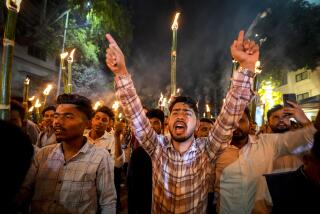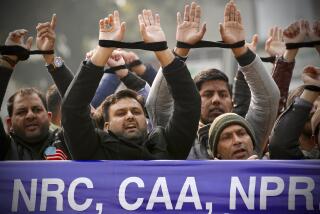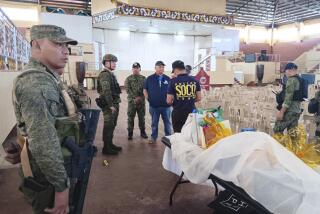In bid to end decades of violence, Philippine president signs law to create more autonomy for Muslims in south
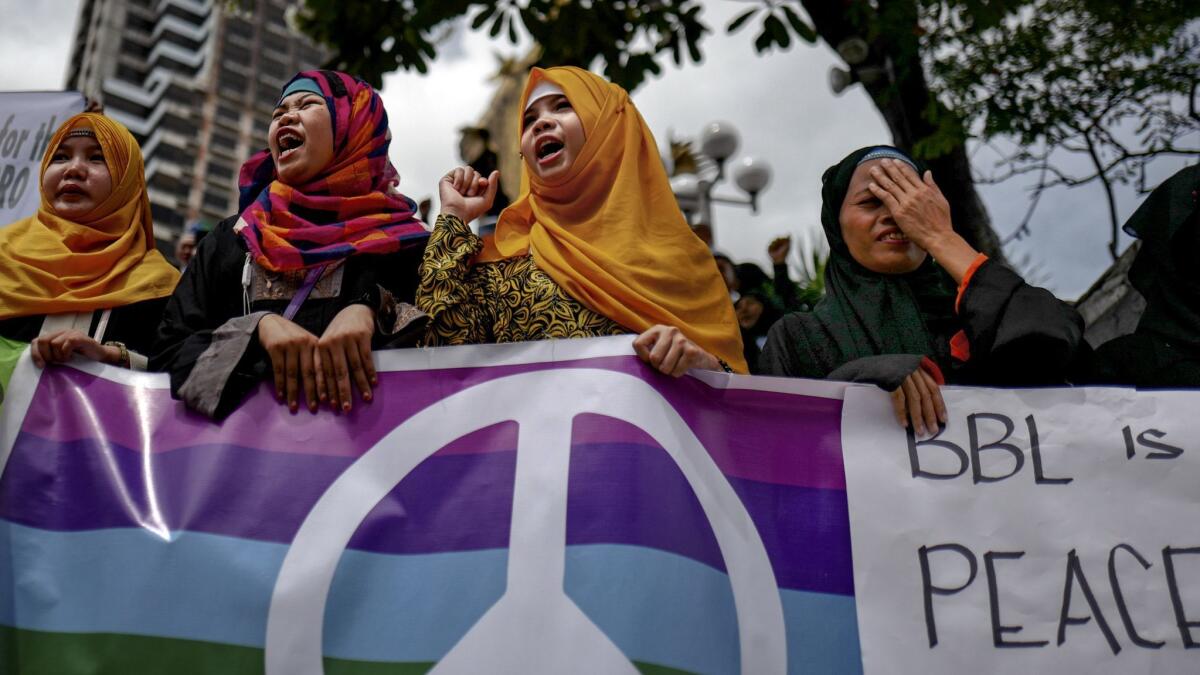
In a step toward ending a half-century of violence that has left as many as 120,000 dead, the Philippine president has signed a law to expand autonomy for a Muslim territory in the country’s south that has fought intensely for greater independence and control of its natural resources.
The Bangsamoro Organic Law will establish an autonomous region for 3.8 million people living on the southern island of Mindanao with greater local control, increased government funding and a bigger share of revenue from its natural resources, including its fossil fuels.
In exchange, the heavily armed Moro Islamic Liberation Front separatist group would disarm 30,000 of its fighters. The law also could tamp down any efforts in the restive region to reach out to militant groups, including Islamic State, for support in its quest for greater independence. Terrorism is an ongoing problem in the region.
“I hope that the Bangsamoro law is the solution to the problems we are facing,” said Annajar Aminnajar, 20, a university graduate from Marawi.
Marawi, a city on Mindanao, was rocked last year by fighting between government troops and a Muslim separatist group. A section of downtown is still in ruins: strewn with rubble, dotted with the grey shells of buildings and off limits to all but the army. Aminnajar remembers fleeing campus for two months to escape the fighting that killed more than 1,100 people. Marawi will be part of the newly formed region called Bangsamoro.
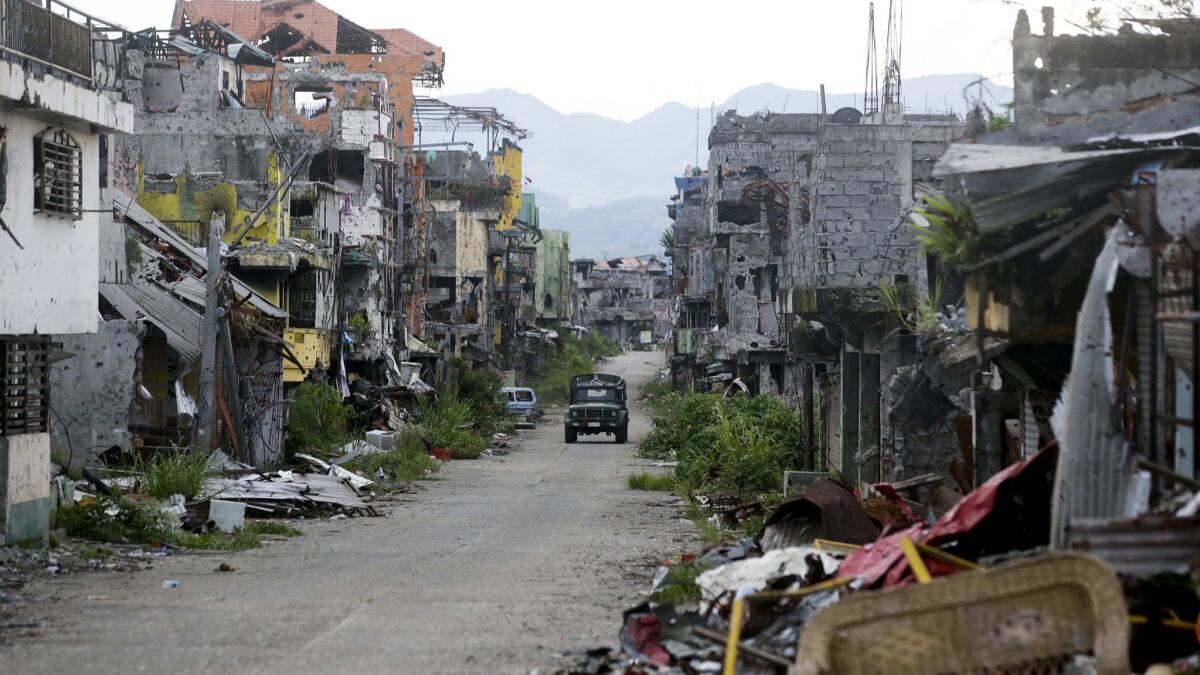
Now Aminnajar lives near Marawi and is looking for work as a sharia lawyer. “If that law passes, there should be new jobs given to us,” he said.
Muslims have lived in Mindanao and the outlying islands for more than 500 years, with many living in poverty while the largely Christian nation’s government controlled its natural resources.
Violence is so common in Mindanao that citizens from other countries are advised not to travel to the island, in turn stunting tourism and foreign investment. One rebel group has a reputation for kidnapping foreign tourists and occasionally beheading them.
The new law by itself may not settle all the differences, scholars warn. Indeed, some militants already want a greater voice in government.
“It’s a confidence-building process — I give you a little bit, you show me you can get along; then, no problems, we give you a little bit more,” said Enrico Cau, a doctoral student in international affairs at Tamkang University in Taiwan.
Philippine President Rodrigo Duterte, who is from Mindanao, pushed for the law’s passage and told Congress this year to make it a priority. Legislators approved it earlier this week. Duterte pledged Monday not to “allow [Islamic State] terrorists or allies to gain foothold in the country.”
The region established by the law will span at least 4,840 square miles. Local elections are expected to be held within the next three months to decide whether more cities and villages can join.
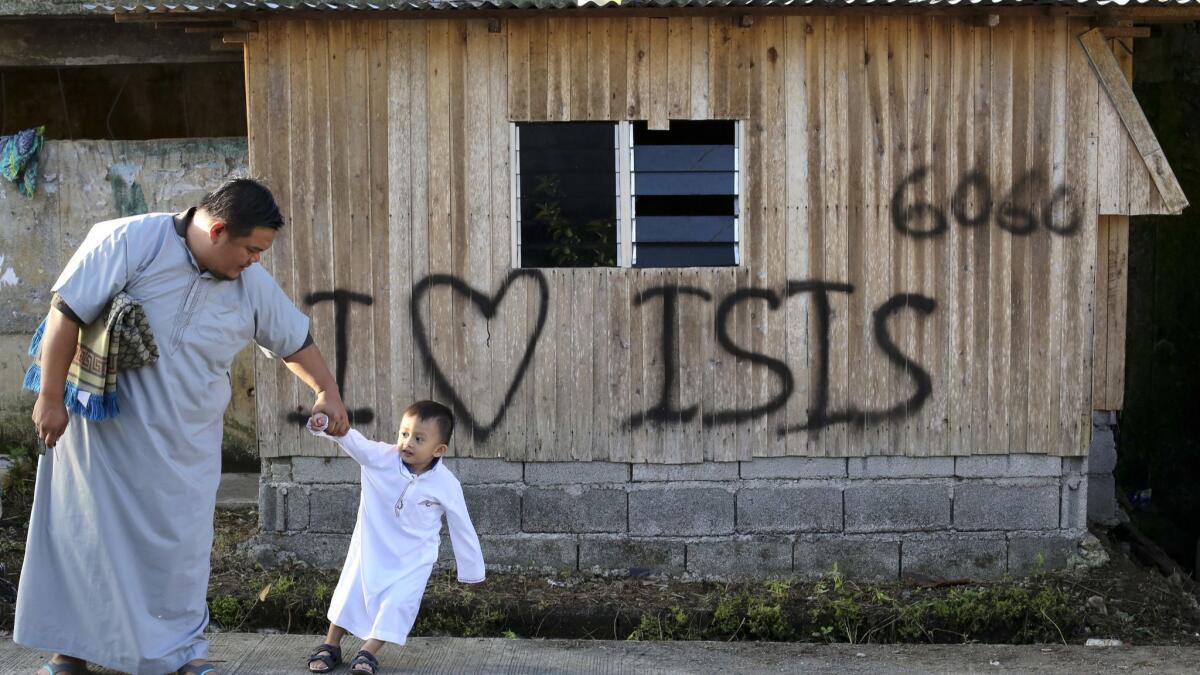
The new region will automatically get government block grants equal to 5% of national tax and customs revenue, which would have come to roughly $2 billion in 2017. In the past, Muslim leaders needed to apply for the funding, with no guarantee of getting it. The central government also will give the Bangsamoro region $93.6 million annually for 10 years for rehabilitation of conflict areas.
Some of that funding might go toward creating jobs for young people, said Asec Felix Castro, a Mindanao-based field office manager with a government agency in charge of rebuilding after the violent clashes in Marawi. Muslim Mindanao faced unemployment of 8.8% in 2016.
The new law states that all income from development or use of natural resources will go to the Bangsamoro government, with exceptions for uranium and fossil fuels. Their revenues would be split with the Philippine government.
The new region should be able to levy taxes as well, said Habib Macaayong, president of the Mindanao State University System based in Marawi.
“The powers of the local governments would be expanded, so the people will very happy,” Macaayong said. “These are powers that have not been enjoyed by local government units and are built into approval of the Bangsamoro Organic Law.”
Whether the various Muslim groups and ethnic minorities in the Bangsamoro region can successfully share power may well determine whether the new law actually works, said Henelito Sevilla, assistant international relations professor at University of the Philippines. A single ethnic group dominated the previous autonomy process, irritating others, he said.
“There was no real autonomy,” Sevilla said. “There was a very open division between and among leadership of tribes of Mindanao. With approval of the new Bangsamoro law, we hope it gives more inclusiveness to all tribes.”
An armed rebel group that split from the liberation front has plotted attacks in Mindanao this year, and troops killed 44 of them in March. The splinter group could “be a bigger problem again” if the liberation front alone leads the Bangsamoro region, Macaayong said.
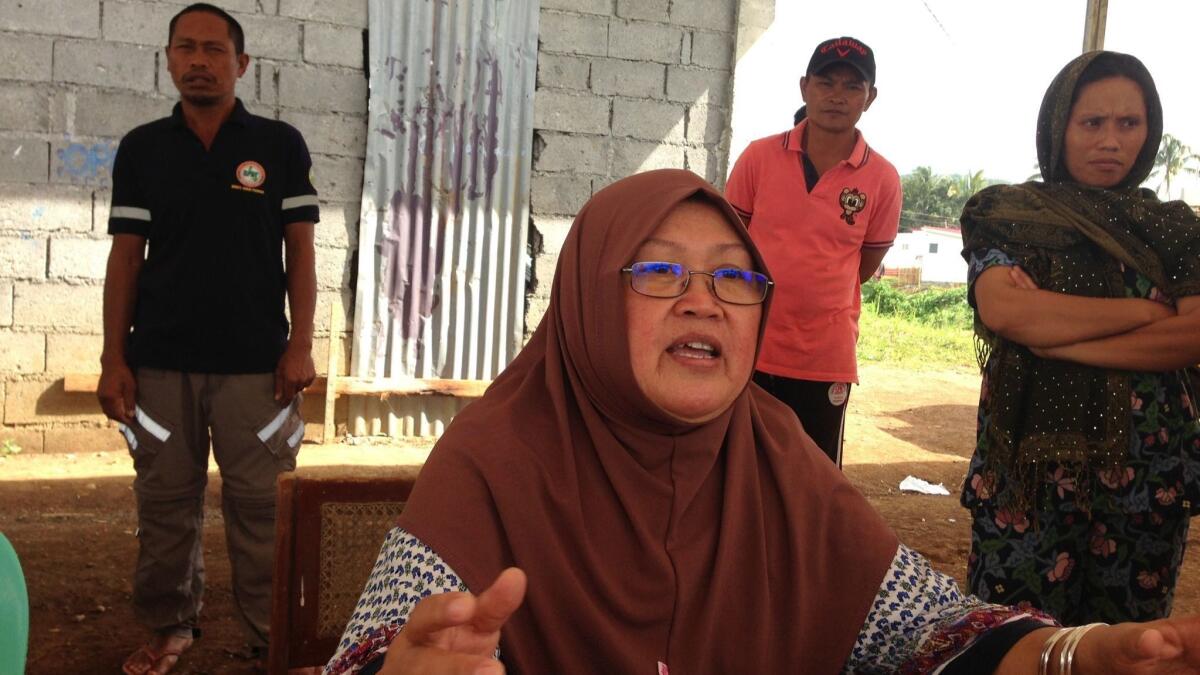
Any dissatisfaction in Mindanao with the government’s role in the Bangsamoro Organic Law could push Muslims to side with Islamic State or spawn another rebel faction, Philippine scholars fear.
“There is no stable decision in the world,” said Cairona Alonto, 60, a Marawi war refugee who fumed about how long the law took to finalize. “Only God can give us stable decisions.”
Jennings is a special correspondent.
More to Read
Start your day right
Sign up for Essential California for news, features and recommendations from the L.A. Times and beyond in your inbox six days a week.
You may occasionally receive promotional content from the Los Angeles Times.
